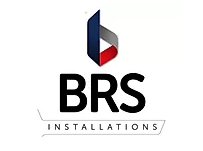Tax Planning for Property Developers (10 common mistakes)
- January 2023
- 5 minutes
According to government data released in August 2021, the average house price in England is now £284,029, a startling 13.3% increase from the previous year. Is it any wonder, given that the majority of renovations take several months, that even if they don’t increase a property’s value, the built-in inflationary profit continues to draw more and more people to this ostensibly low risk but lucrative industry?
Tax is one of many potential traps for the unwary, but there are many others as well. The ten most frequent tax pitfalls or missed opportunities that we encounter with our property developers, particularly those who are new to this line of work, are listed below:
 (1) Not Using the correct legal entity
(1) Not Using the correct legal entity
One of the easiest and most frequent mistakes rookie property investors make is starting their first project under their own names. They falsely believe that as long as they don’t take any of their company’s profits, they can roll those funds over and invest them in their next business. Unfortunately, this is not the case, and a person will be subject to their highest income tax rate. In other words, a person making £20,000 in profit from property development while earning a salary of £50,270 (tax year 2021/22) will pay almost £9,000 in tax and national insurance. This liability could be reduced to £3,800 by simply forming a limited company, saving £5,200.
Do note that limited companies are not always the right solution. There are additional running costs and if the project is a one off there may be no savings at all by going limited so please seek professional advice
 (2) As a property developer your income is assessed as a trade and not as a capital gain
(2) As a property developer your income is assessed as a trade and not as a capital gain
This is a typical error that many people who start out in property make. They assume the profit will be subject to capital gains tax because they are selling a property. This is only true, though, if the property is kept for a while as an investment and either used personally or rented out. If the property was purchased with the intention of renovating it and reselling it for a profit, the profit is considered to be trading income and is subject to income tax, national insurance, and corporation tax, if purchased personally or through a limited company. So instead of paying 18% or 28% capital gains tax you could be paying 20% or more likely 40 or 45% income tax together with a potential national insurance liability.
 (3) Mixing your own personal property with your property development business
(3) Mixing your own personal property with your property development business
This is yet another traditional error. Due to the so-called principal private residence relief, when the majority of people sell their primary residence, there is no capital gains tax. This assumption, however, has two common flaws.
First, you might just opt to occupy the property while it is being renovated and deduct PPR from the profit. Many people have done this, but sadly HMRC (the taxman) is aware of it and may attempt to disallow the PPR relief and tax the profit as a trade where this occurs repeatedly.
When you apply for planning permission to build, say, a second home on your property (like a barn conversion) or convert your house into flats, etc., a second issue may come up. This might significantly raise your property’s value. If you sell the property with only a planning permission and haven’t started any work on the development, your PPR exemption should still cover this increase in value. As soon as you dig a hole, this uplift might turn into taxable income. In brief if you look to exploit your home to make a profit then the likelihood is that tax is payable. Therefore seek professional advice to see if there are ways to mitigate or avoid this liability. Invariably there are!
 (4) No construction industry scheme
(4) No construction industry scheme
Property developers who disregard advice almost universally fail to establish a construction industry scheme (CIS) to deduct CIS tax from the labour component of any subcontractors who work for them. Basically, whether you’re a sole proprietor or a limited company, if you hire labour for a property development, you have to stop 20% tax on the labour element unless the subcontractor has an exemption certificate (30% tax is stopped if the subcontractor is not registered with the taxman as a CIS subcontractor). Groundworkers, bricklayers, electricians, plumbers, double glazing companies, scaffolding companies, roofers, plasterers, kitchen fitting companies, etc. are all considered to be laborers.
Penalties of tens of thousands of pounds may be imposed for failure to register. Even if all of the subcontractors are self-employed and have paid their own taxes, this can still occur.
Please be aware that there is a difference between investing in and developing property . A property investor is someone who invests in property for the long term and not just for short-term gains. Most of the time, a property investor won’t need to run a CIS scheme unless they do a lot of construction work.
 (5) Incorrectly paying your workers
(5) Incorrectly paying your workers
It goes without saying paying your workers cash is a no no. Not only is it illegal but often a false economy as their expense cannot be claimed as a deduction against the business profits, potentially costing an additional 19% tax for companies and 40%+ for individuals.
Furthermore if you do get heavily involved in property development and “employ” someone long term you have to consider whether they should be taxed as an employee or can be treated as self-employed. Make sure all your subcontractors are genuinely self-employed if that’s how you are treating them. Anyone who is unskilled or working exclusively for you and under your instruction is likely to be deemed an employee and should therefore be taxed as an employee with the requisite national insurance and pension costs to add. Failure to engage a worker correctly can result in huge tax liabilities as well as penalties and interest.
 (6) Not claiming finance costs
(6) Not claiming finance costs
Financing is typically a fairly simple process. In order to purchase the property for development, a loan is taken out, and it is obvious that the interest paid on that loan can be deducted from the company’s profit. Like there wouldn’t be on the interest on a mortgage taken out for a property bought personally to rent out, there are no restrictions on mortgage interest.
What about the money for the deposit, though? Has this money come from savings or a refinance of your primary residence? It is common to overlook the interest on personal loans taken out to provide the start-up capital for a business, as well as the setup costs, deposit, plant, and equipment.
 (7) Not charging interest on your loans to your company
(7) Not charging interest on your loans to your company
The money you give to the company acts as a loan from the director or business owner to the company if you establish a company and borrow personally to pay for a portion of the setup. The individual may charge interest at rates as high as 10% annually. A loan’s interest payment may be very tax advantageous. Inconsistencies in the tax code can be taken advantage of, and this is by far a more tax-efficient method of obtaining profits from a company than paying salaries or dividends.
Be aware, if you’re an individual looking to obtain interest from a company, you must complete Form CT61 and deduct 20% of the interest payment for taxes.
However if your loan exceeds £10K then invariably there is a significant tax saving even after professional fees to complete the form CT61.
 (8) Not Tracking income and expenses and paying more tax
(8) Not Tracking income and expenses and paying more tax
We mentioned interest above but there are so many expenses you can claim which are frequently overlooked. Any business mileage carried out on behalf of the business – going to auctions etc… can be reclaimed. If you use your own car this can be as much as 45p per business mile.
Mileage is only the start. Talk to your professional advisor, they will have a list of expenditure often overlooked such as use of home office, subsistence, entertaining, trivial benefits etc….
If you have a limited company drawing small salaries can also be tax advantageous.
 (9) Not Considering VAT
(9) Not Considering VAT
The majority of property developments do not have a VAT issue because the sale of property is typically exempt, which means that no VAT can be recovered on purchases but no VAT can be charged on the sale. However, property development involves more than simply fixing up a slightly run-down house and reselling it.
There are opportunities for significant VAT savings with new construction, conversions from commercial to residential, conversions to a different residential use, and properties left vacant for two years. Speaking with a specialist with experience in property development will be extremely beneficial at this point. To see if there is a chance to save VAT, anything out of the ordinary needs to be investigated.
 (10) Not Including Your Partner!
(10) Not Including Your Partner!
If you are considering a career in property development, take into consideration your family structure and set up the company in the most tax-efficient manner possible by making sure you and your partner take advantage of your personal allowances and basic rate tax bands. Again, simple tax planning like this is frequently disregarded.
The aforementioned are the most typical tax pitfalls, but there are many others. As you can see, there are many pitfalls in property development, which is why we advise anyone considering the industry to seek professional guidance. The numbers are almost always large, and mistakes or missed opportunities can be costly.
















